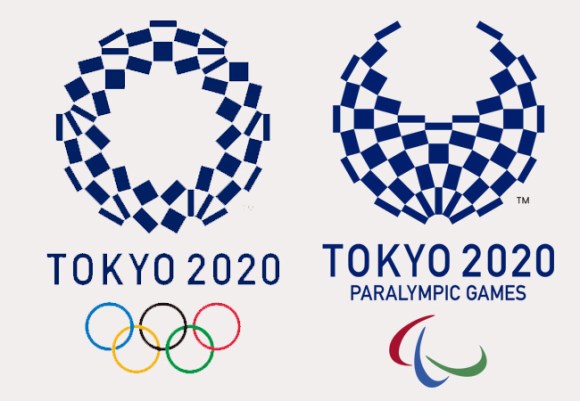
You don’t get many chances to be a part of sports history, and judging by the standards for volunteers set by the The Tokyo Organising Committee of the Olympic and Paralympic Games, this isn’t one either.
On 4 July, news organization Asahi Shimbun reported on a draft of requirements to become a volunteer for the 2020 Olympic and Paralympic games issued by the Organising Committee. Here is a brief rundown of some of the conditions and qualities that a potential volunteer should be able to meet.
- Possess communication skills
- Speak a foreign language
- Work over ten eight-hour days
- Have knowledge of events or experience watching them live
- Be over 18 years old in 2020
- Go through three stages of training and an interview
- Pay for own transportation and accommodation
Of course, this being a volunteer position, there is no payment for those selected, but the Organising Committee points out that they can keep their uniforms for free. You might be wondering why someone with such skills and availability would want to help out at the Olympics for next to nothing, and you wouldn’t be alone judging by some of the many comments that poured in.
“They wasted so much money on this pork barrel and now expect to get skilled workers for free? I mean why would they actually give some of the money back to the regular people?”
“I’d have a hard time hiring people like that for 2,000 yen (US$20) an hour.”
“This is what happens when they squander money on things that aren’t needed. Welcome to the low-(labor)-cost Olympics!”
Also, the Organising Committee isn’t just looking for a few good bilingual men and women, but need about 80,000 of them to keep the games running smoothly. Apparently in anticipation of widespread scoffing, the committee was also quick to point out that the 2012 London Olympics managed to get 70,000 volunteers selected from a field of 240,000 applicants.
It remains to be seen if the Japanese are quite as enthusiastic as the British when it comes to helping out at the Olympics. Given the bilingual factor and public’s growing resentment of the string of scandals coming out of these Games, it does seem less likely.
However, this isn’t Japan’s first Olympics either, so the committee must have some sense of the limits of their recruitment drive. A few commenters remember how it was done before.
“During the Nagano Games, the volunteers were sent from companies.”
“These ‘volunteers’ are going to come from corporations. If you happen to work for an Olympic sponsor, good luck!”
“I can hear those company slaves singing ‘Kimigayo’ already.”
Also, the Labor Standards Bureau issued a warning during the Nagano Olympics that since those employees sent on Olympic “business trips” are technically doing “volunteer work,” they aren’t eligible for certain rights such as worker’s compensation in the even of an accident.
However, 80,000, is a lot of people and there is sure to be a healthy mix of “company slaves” alongside people who are simply drawn to the pure spirit of human competition and sportsmanship. If you are one of those people, there is plenty of time to apply before volunteers are chosen in August 2018 and begin their first level of training.
That should give you a good chunk of time to pick up a working knowledge of Icelandic and watch plenty of water polo games.
Source: Asahi Shimbun, Tokyo 2020, B! Hatena, Netlab (Japanese)
Top Image: Wikipedia/Asao Tokolo (1, 2)

 Tokyo Olympics organizers offer to pay volunteers 125 yen 【US$1.13】 an hour, critics unimpressed
Tokyo Olympics organizers offer to pay volunteers 125 yen 【US$1.13】 an hour, critics unimpressed Japan ministry urges universities to adjust curriculum to accommodate student Olympic volunteers
Japan ministry urges universities to adjust curriculum to accommodate student Olympic volunteers Report reveals that more than 40 percent of Tokyo Olympics volunteers are made up of foreigners
Report reveals that more than 40 percent of Tokyo Olympics volunteers are made up of foreigners Spirit of volunteering strong for Tokyo 2020 Olympics, but data suggests something may be off
Spirit of volunteering strong for Tokyo 2020 Olympics, but data suggests something may be off Tokyo Olympics losing volunteers even after president’s resignation for sexist remarks
Tokyo Olympics losing volunteers even after president’s resignation for sexist remarks Burning through cash just to throw things away tops list of headaches when moving house in Japan
Burning through cash just to throw things away tops list of headaches when moving house in Japan Last chance coming up for amazing east Japan for all-you-can-ride Shinkansen-inclusive train pass
Last chance coming up for amazing east Japan for all-you-can-ride Shinkansen-inclusive train pass We eat at three Japanese family restaurants to find the one with the best-value breakfast
We eat at three Japanese family restaurants to find the one with the best-value breakfast Is Sapporio’s Snow Festival awesome enough to be worth visiting even if you hate the snow? [Pics]
Is Sapporio’s Snow Festival awesome enough to be worth visiting even if you hate the snow? [Pics] This regional pizza buffet offers so many flavors you won’t be able to try them all
This regional pizza buffet offers so many flavors you won’t be able to try them all Studio Ghibli gave out Pokémon sweets and other candy to Tokyo Halloween trick-or-treaters【Photo】
Studio Ghibli gave out Pokémon sweets and other candy to Tokyo Halloween trick-or-treaters【Photo】 The Akihabara ? Bag lucky bag may disappoint you if you yourself are a pretty weird guy
The Akihabara ? Bag lucky bag may disappoint you if you yourself are a pretty weird guy Tokyo Station staff share their top 10 favorite ekiben
Tokyo Station staff share their top 10 favorite ekiben Japanese Twitter rolls eyes at book teaching “manners 90 percent of Japanese people don’t know”
Japanese Twitter rolls eyes at book teaching “manners 90 percent of Japanese people don’t know” What to do if you want to lower your apartment rent or avoid paying key money in Japan
What to do if you want to lower your apartment rent or avoid paying key money in Japan Starbucks Japan releases new sakura goods and drinkware for cherry blossom season 2026
Starbucks Japan releases new sakura goods and drinkware for cherry blossom season 2026 The 10 most annoying things foreign tourists do on Japanese trains, according to locals
The 10 most annoying things foreign tourists do on Japanese trains, according to locals Naruto and Converse team up for new line of shinobi sneakers[Photos]
Naruto and Converse team up for new line of shinobi sneakers[Photos] Starbucks Japan unveils new sakura Frappuccino for cherry blossom season 2026
Starbucks Japan unveils new sakura Frappuccino for cherry blossom season 2026 Now is the time to visit one of Tokyo’s best off-the-beaten-path plum blossom gardens
Now is the time to visit one of Tokyo’s best off-the-beaten-path plum blossom gardens Foreign tourists in Japan will get free Shinkansen tickets to promote regional tourism
Foreign tourists in Japan will get free Shinkansen tickets to promote regional tourism Japan has trams that say “sorry” while they ride around town…but why?
Japan has trams that say “sorry” while they ride around town…but why? Sakura Totoro is here to get spring started early with adorable pouches and plushies
Sakura Totoro is here to get spring started early with adorable pouches and plushies Poop is in full bloom at the Unko Museums for cherry blossom season
Poop is in full bloom at the Unko Museums for cherry blossom season Japan’s newest Shinkansen has no seats…or passengers [Video]
Japan’s newest Shinkansen has no seats…or passengers [Video] Foreigners accounting for over 80 percent of off-course skiers needing rescue in Japan’s Hokkaido
Foreigners accounting for over 80 percent of off-course skiers needing rescue in Japan’s Hokkaido Super-salty pizza sends six kids to the hospital in Japan, linguistics blamed
Super-salty pizza sends six kids to the hospital in Japan, linguistics blamed Archfiend Hello Kitty appears as Sanrio launches new team-up with Yu-Gi-Oh【Pics】
Archfiend Hello Kitty appears as Sanrio launches new team-up with Yu-Gi-Oh【Pics】 Take a trip to Japan’s Dododo Land, the most irritating place on Earth
Take a trip to Japan’s Dododo Land, the most irritating place on Earth China’s don’t-go-to-Japan warning looks to be affecting tourist crowds on Miyajima
China’s don’t-go-to-Japan warning looks to be affecting tourist crowds on Miyajima Survey asks foreign tourists what bothered them in Japan, more than half gave same answer
Survey asks foreign tourists what bothered them in Japan, more than half gave same answer Japan’s human washing machines will go on sale to general public, demos to be held in Tokyo
Japan’s human washing machines will go on sale to general public, demos to be held in Tokyo Starbucks Japan releases new drinkware and goods for Valentine’s Day
Starbucks Japan releases new drinkware and goods for Valentine’s Day We deeply regret going into this tunnel on our walk in the mountains of Japan
We deeply regret going into this tunnel on our walk in the mountains of Japan Studio Ghibli releases Kodama forest spirits from Princess Mononoke to light up your home
Studio Ghibli releases Kodama forest spirits from Princess Mononoke to light up your home Major Japanese hotel chain says reservations via overseas booking sites may not be valid
Major Japanese hotel chain says reservations via overseas booking sites may not be valid Put sesame oil in your coffee? Japanese maker says it’s the best way to start your day【Taste test】
Put sesame oil in your coffee? Japanese maker says it’s the best way to start your day【Taste test】 No more using real katana for tourism activities, Japan’s National Police Agency says
No more using real katana for tourism activities, Japan’s National Police Agency says Half of Tokyo’s universities to use credits to “convince” students to volunteer in 2020 Olympics
Half of Tokyo’s universities to use credits to “convince” students to volunteer in 2020 Olympics Tokyo Olympics opening ceremony preliminary ticket prices announced, wallets cry across Japan
Tokyo Olympics opening ceremony preliminary ticket prices announced, wallets cry across Japan Tokyo Olympics and Paralympics mascot finalists unveiled【Pics & Video】
Tokyo Olympics and Paralympics mascot finalists unveiled【Pics & Video】 Looks like it’s time to say good-bye, and maybe good riddance, to the 2020 Tokyo Olympics logo
Looks like it’s time to say good-bye, and maybe good riddance, to the 2020 Tokyo Olympics logo Just what the heck is the Tokyo Olympics symbol supposed to be?
Just what the heck is the Tokyo Olympics symbol supposed to be? Advice for Tokyo 2020 Olympics volunteers: Dress like a Japanese ninja
Advice for Tokyo 2020 Olympics volunteers: Dress like a Japanese ninja 2020 Tokyo Olympic torch relay to tour all 47 prefectures of Japan starting from Fukushima
2020 Tokyo Olympic torch relay to tour all 47 prefectures of Japan starting from Fukushima Tokyo Olympics to allow spectators, provided they “cheer quietly”
Tokyo Olympics to allow spectators, provided they “cheer quietly” Tokyo Olympics ceremony chief quits after suggesting Naomi Watanabe dress as an “Olympig”
Tokyo Olympics ceremony chief quits after suggesting Naomi Watanabe dress as an “Olympig” Is there an adorably chubby bird hiding inside the Tokyo Olympics logo?
Is there an adorably chubby bird hiding inside the Tokyo Olympics logo? Tokyo Olympics announces new start date following coronavirus postponement
Tokyo Olympics announces new start date following coronavirus postponement The 2020 Tokyo Olympics announces the winner of its adorable mascot election
The 2020 Tokyo Olympics announces the winner of its adorable mascot election Tokyo Olympics Village looks like an eerie ghost town
Tokyo Olympics Village looks like an eerie ghost town Online auction market booming for posters with cancelled, possibly copied 2020 Olympics emblem
Online auction market booming for posters with cancelled, possibly copied 2020 Olympics emblem